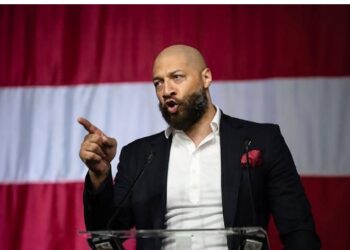In a blistering Monday evening WarRoom segment, Steve Bannon and Jack Posobiec laid waste to what they call the “regime change reset” led by Senator Lindsey Graham and his neocon allies, while reinforcing President Donald Trump’s anti-interventionist stance. The core of the conversation centered on the establishment’s latest attempt to gin up public support for deeper U.S. involvement in Iran, framed as another performance in a decades-long theater of foreign entanglements that have cost American lives, treasure, and credibility.
Quick Clip:
POSOBIEC: "Lindsey Graham Is Paid By The Military Industrial Complex To Go On TV And Sell You War” @JackPosobiec pic.twitter.com/lkMKrdxRl8
— Bannon’s WarRoom (@Bannons_WarRoom) June 23, 2025
Graham, speaking on the Senate floor, invoked Iran’s brutal 1979 Islamic Revolution and the subsequent hostage crisis, portraying the regime as unchanged and deserving of a U.S.-led intervention. Bannon wasn’t buying it. He mocked the senator’s "upsell” tactics, which he likened to a cheap sales pitch laced with historical cherry-picking and emotional bait. "It’s cosplay,” Bannon said. "President Trump already handled the real threat when he took out Soleimani.” That move, he argued, demonstrated strength without endless occupation or war.
Watch:
LIVE FROM HOUSE FLOOR: Warmonger Lindsey Graham Pushes For Regime Change
Posobiec took the scalpel even deeper, tracing today’s conflict back to the CIA’s 1953 overthrow of Iran’s democratically elected prime minister, Mohammad Mossadegh—an operation orchestrated with British intelligence to protect Western oil interests. The result? Decades of blowback, culminating in the rise of the Ayatollahs. "We broke it before,” Posobiec warned, "and Lindsey wants to break it again.” The duo presented this historical perspective not as revisionist but as a necessary red pill for conservatives to understand the true cost of regime change.
Posobiec ridiculed the fantasy that Iran could become a democratic utopia under U.S. influence, pointing to Iraq as a cautionary tale. Lindsey Graham’s lofty claims about uniting Sunnis, Shias, Jews, and Christians in a rebuilt Iran were dismissed as "delusional,” reminiscent of the false promises that the U.S. would be "greeted as liberators” in Baghdad. Bannon called it “neocon theater” performed for defense contractors and cable news audiences, not for the American people.
Meanwhile, Posobiec raised hard strategic questions about military logistics. With U.S. air defense systems already stretched between Ukraine and Israel, and China flexing muscle in the South China Sea with more active aircraft carriers than the U.S., the duo warned of spreading American forces too thin. “We live in a finite world,” Posobiec said. “And Lindsey Graham acts like there’s no limit.”
The discussion concluded with a reality check: this isn’t 2003, and President Trump is not George W. Bush. There’s no public appetite for another war, no moral high ground to stand on, and no justification for risking American lives to chase fantasy outcomes abroad. Trump’s doctrine—no more endless wars, no more regime change—represents a hard turn from neocon adventurism toward America First realism.
Bannon and Posobiec’s message was clear: Lindsey Graham doesn’t speak for America. He speaks for a defense industry desperate to keep the war machine humming. But under President Trump, that machine is getting unplugged.
For more context, watch this WarRoom segment featuring Jack Posobiec:
POSOBIEC: "Lindsey Graham Is Paid By The Military Industrial Complex To Go On TV And Sell You War”





